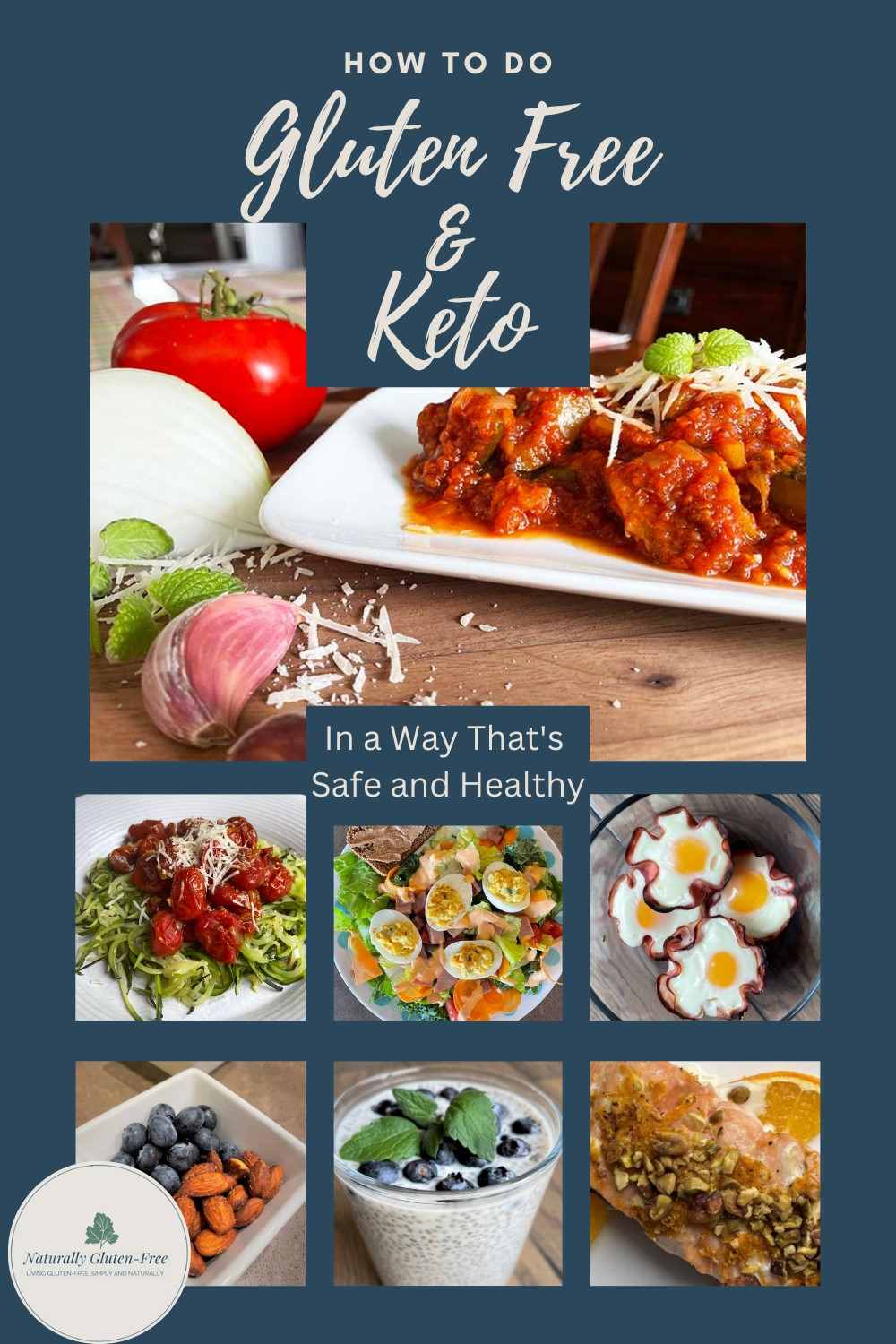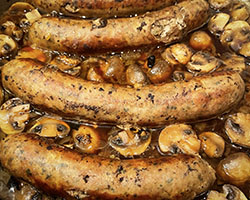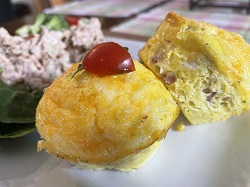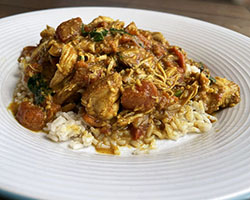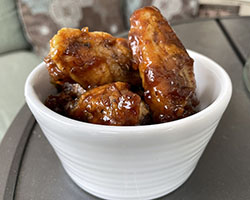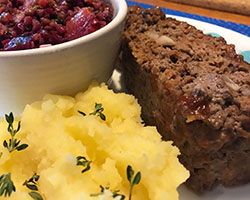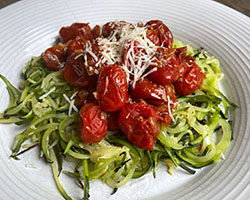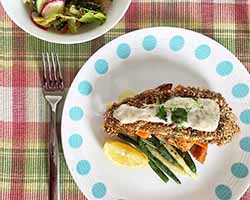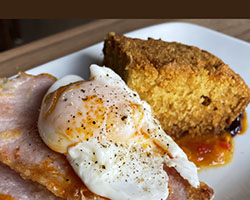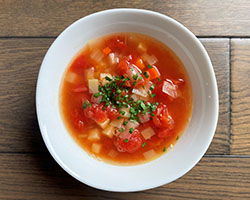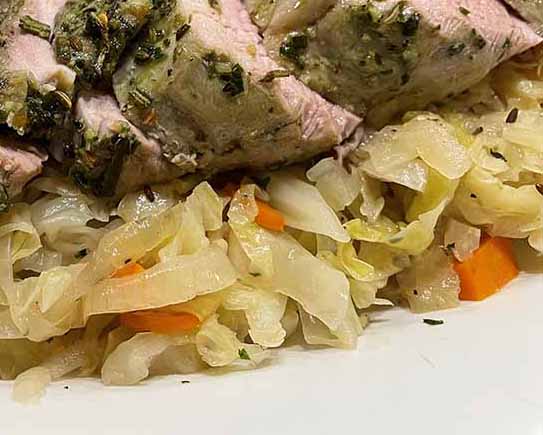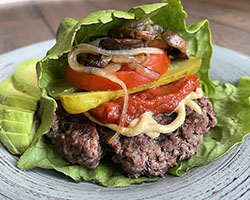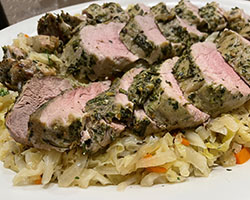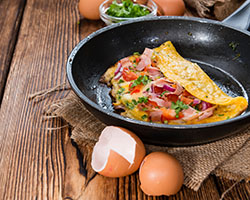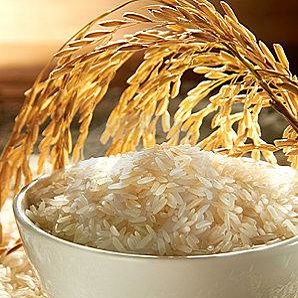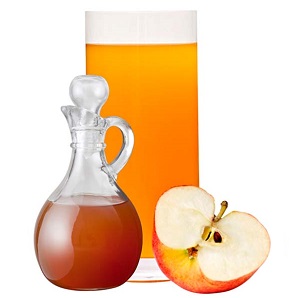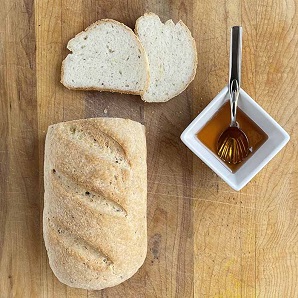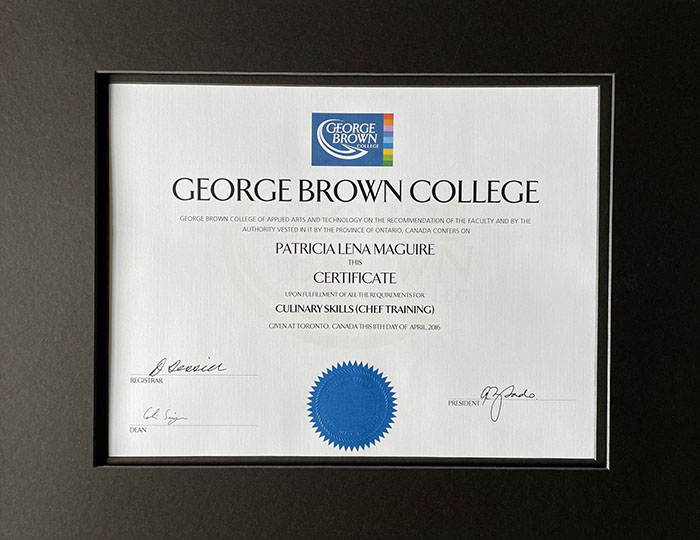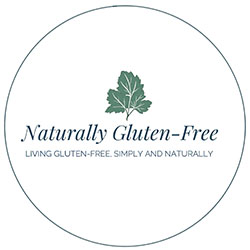- Home
- Intolerances and Special Diets
- Gluten Free and Keto Diet
How to do a Gluten Free and Keto Diet Safely
If you have celiac disease or gluten sensitivity, there are a few reasons to consider a gluten free and keto diet:
- maybe you'd like to lose a few pounds
- maybe you're still having tummy troubles and you've heard keto might help
- maybe you're trying to get your sugar intake under control
Whatever your reasons, I know you want your gluten free and keto diet to be healthy and delicious so you can stick to it and enjoy all the benefits.
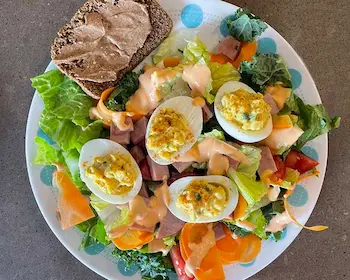
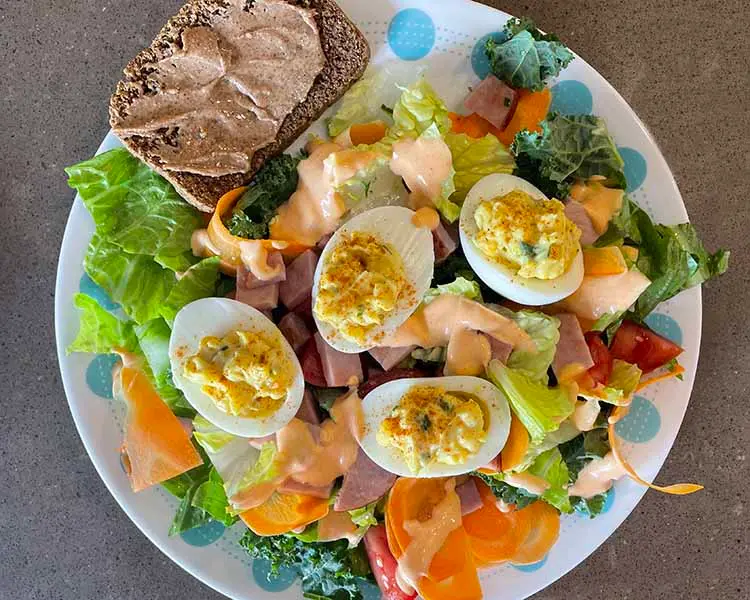
Here I’m going to share some facts and myths about the keto diet and the best way to do keto if you have celiac disease. I'll talk about my personal experience, the plan I followed and even give you a bunch of recipes.
Table of Contents
What is Keto?
Keto is a short for "Ketogenic". It's a diet plan is very low in carbohydrates, or carbs for short.
The purpose of the Keto diet is to put your body into a state called Ketosis so you burn fat for fuel instead of carbs.1
The Keto diet is very low carb. It completely eliminates grains, sugars and high carbohydrate fruits and vegetables. This means:
- no pasta
- no potatoes
- no rice
- no bread
Instead, you eat whole foods like meat, low carbohydrate vegetables and healthy fats2. Sounds a little like what I talk about at naturally gluten free doesn’t it.?
Macros
On the Keto diet you’ll hear lots about “macros”. This is short for "macronutrients" in your diet: protein, fat, and carbs.
The Keto diet recommends a ratio of 70% fat, 5% carbs and 25% protein. The standard American dietary recommendation is 20-35% fat, 45-65% carbs and 10-35% protein3.
Is Keto Gluten Free?
Yes, sort of.
Because you're getting rid of grains, Keto is gluten free by design. But be careful of Keto products. They are made for people on the Keto diet, not for people on a gluten free diet, so they may contain gluten.
Just like you do for your gluten free diet, always check labels. Look for gluten ingredients or a gluten free claim.
Is Gluten Free Keto?
No, a normal gluten free diet is not Keto friendly. Gluten free bread, baked goods, and most snacks are very high in carbs and not suitable for a Keto diet.
By getting rid of high carb gluten free processed foods, you're well on your way to a healthy, naturally gluten free and keto diet.
Is The Keto Diet Healthy?
You can do Keto in a healthy way or an unhealthy way.
With Keto, the goal is to get your carbs down to somewhere below 50 grams per day, often as low as 20 to 25 grams per day, depending on your size and gender.4
It’s what you replace those carbs with that matters.
Choose healthy, naturally gluten free low carb foods like:
- fresh cuts of meat instead of processed lunch meat
- olive oil and avocado instead of bacon and whipped cream
- nuts and seeds instead of processed bars and pork rinds
- It's okay to use some keto friendly sweeteners like erythritol, monk fruit or stevia, but its better to get used to unsweetened food.
Pin for Later
Is Keto Good For Celiac Disease?
Maybe. If you have celiac disease, there are some good reasons to consider a gluten free a keto diet. Here are a few.
Weight Loss
Most people follow a Keto diet to lose weight.
It is possible to be overweight even if you have celiac disease. If you need to shed a few pounds, then following a gluten free and keto diet may be right for you.
It’s easy to stay gluten free on the keto diet because most keto recipes are gluten free. It works because once you're in ketosis, burning fat instead of carbs, weight will come off much easier.
Inflammation and IBS
Many of us with celiac suffer with inflammation and IBS (irritable bowel syndrome) symptoms. There is lots of evidence that the Keto diet may help.5 This is because:
- Sugar and processed carbs are bad for your gut microbiome6.
- Sugar and processed foods cause inflammation.7
- Inflammation and an unhealthy microbiome can lead to digestive issues like IBS. They may cause other inflammatory symptoms like joint pain, hair loss and skin problems.5
Cancer and Heart Disease
People with celiac disease are at higher risk for heart disease and some cancers. Some studies have shown that keto can compliment chemotherapy and radiation treatments. This is because keto causes oxidative stress to cancer cells causing them to die.
Keto also reduces insulin levels which are linked to some cancers.8
For Keto to have a heart healthy affect you need to choose healthy fats like olive oil and avocado. Keep the bacon and pork rinds to a minimum.
My Experience With the Gluten Free and Keto Diet
At the time of writing, my husband and I have been on the Keto diet for four months. For him is was about weight loss, for me it was more about the inflammation. I’m gluten free (celiac), he is not.
The Food
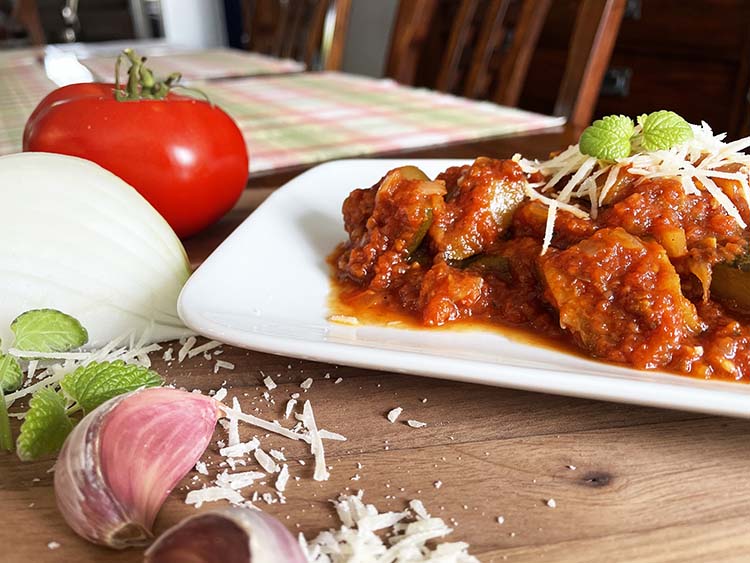
We've both loved the food!
Yes it was hard to give up pasta, potatoes and rice. For me, bread wasn't so hard because gluten free bread isn't great anyway.
Instead we eat lots of vegetables, cheeses, creamy gluten free sauces, meat and healthy oils. We followed the Konscious Keto plan which is mostly Mediterranean style dishes so it's very nutritious and heart healthy.
Weight Loss
I’ve lost about 13 pounds; my husband has lost about 35 pounds.
We stalled a little over the summer. I think that's because we were going out having the odd drink with friends. We’re trying to stick to the diet but it’s easy to go a bit over on your carbs when socializing.
IBS Symptoms
I’m one of those celiacs who’s continued to have digestive issues even after going gluten free. I’m intolerant to casein and eggs, so I avoid those. Still, I get frequent bouts of diarrhea and stomach upset. My doctor ascribes this to IBS which is common with celiac.
With the gluten free and keto diet my stomach feels better. I'm less bloated and the bathroom experience has improved a lot.
I think this is mostly about eliminating sugar. When I eat sugar, my stomach doesn’t feel well, and the bathroom situation is not pleasant. Two books I’ve reviewed recently, Becoming Sugar Free by Julie Daniluk, and Metabolical by Dr. Robert Lustig, go into a lot of detail about how bad sugar is for your gut. So if you’re interested in learning more, both of those books are excellent resources.
Joint and Muscle Pain
I also get joint and muscle pain which I suspect is due to inflammation. I was hoping for better results but I don’t think the needle has moved much there. The search continues.
Other Food Intolerances
According to Dr. Stefano Guandalini, director of the Celiac Center at University of Chicago, food intolerances that go with celiac disease should go away when the gut heals.
For me that's eggs and casein. I’ve started to have the odd farm fresh egg with just a little gurgling in the tummy rather than full on explosive… well you don’t need the details. I’ve not tried cows milk yet but may brave it one day.
My Conclusion
Bottom line, after 4 months on Keto I’m seeing some worthwhile improvement. Even if I don’t stay on the keto diet for ever, I plan to stay (mostly) sugar free and keep my carbs down.
How to Cook for a Gluten Free and Keto Diet
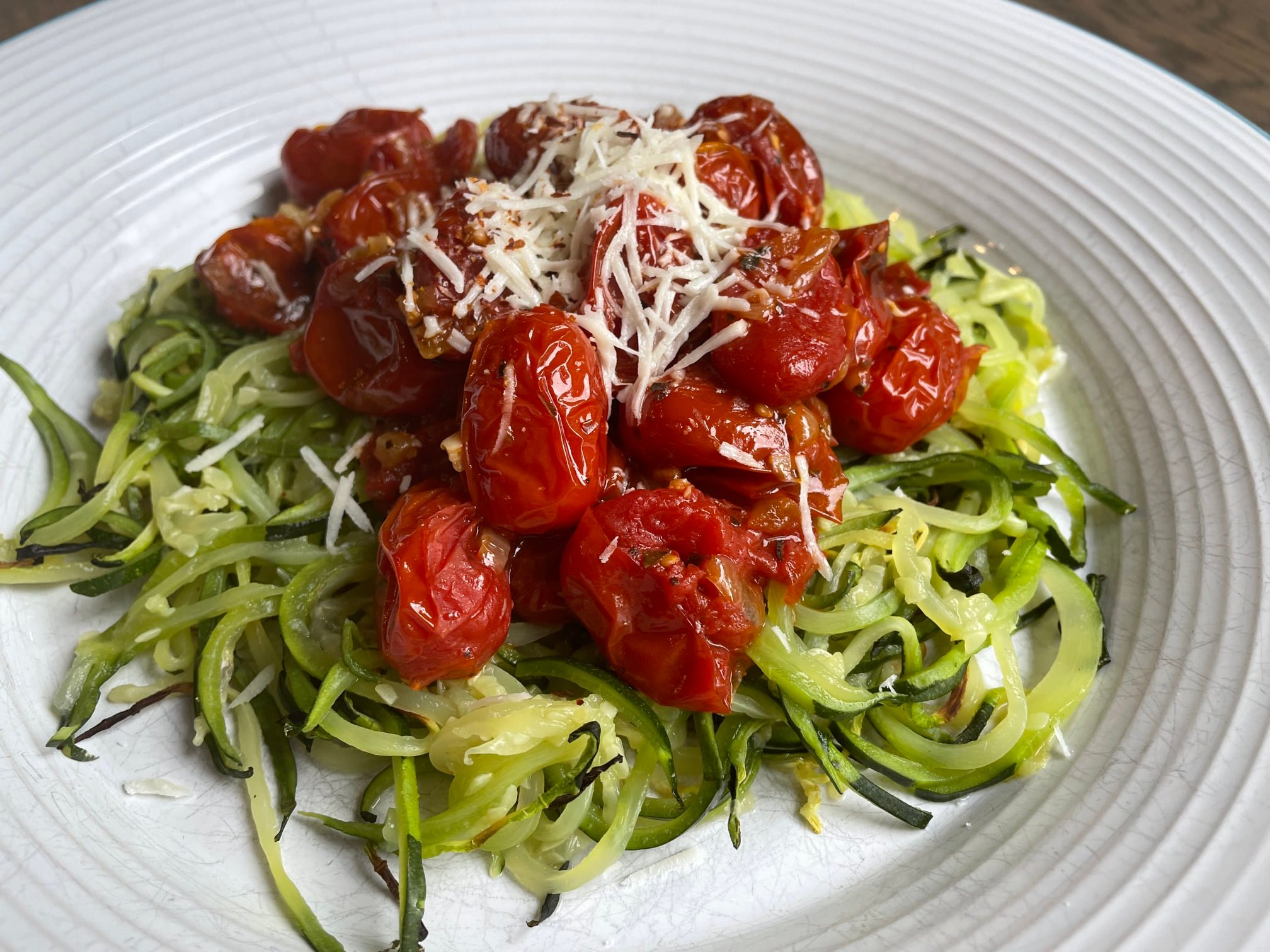
If you’re on a gluten free and keto diet, your cooking will change a little, but you’ll get the hang of it quickly.
Thickeners
The ingredients you use to thicken sauces will change. Instead of flours and starches you can use xanthan gum and guar gum. They are keto approved replacements that are also gluten free. Here are some more tips for making sauces for your gluten free and keto diet.
Sweeteners
Anything with sucrose in it is off the table for keto. This means no
- white sugar
- brown sugar
- maple syrup
- honey
- high fructose corn syrup
The recommended keto-friendly sweeteners are:
- erythritol
- xylitol
- monk fruit
- stevia
Replacing Potatoes Rice and Pasta
If you’re like me, you’re used to having a starch at every meal. For our gluten free and keto diet these are off the table, so what do we do for sides?
I like to include a salad plus a keto-friendly vegetable with my meals. Cauliflower, broccoli, brussels sprouts, asparagus, green beans, zucchini and eggplant are vegetables that you’ll find in most keto plans.
We often make zucchini noodles or "zoodles". Cauliflower makes a surprisingly good substitute for mashed potatoes or rice.
Gluten Free and Keto Friendly Products
In the "free from" section of your supermarket or local health food store you'll find products that are suitable for a gluten free and keto diet.
There are breads, bagels, bars, crackers and sweet treats. Keep the processed foods to a minimum, but a little bit is fine.
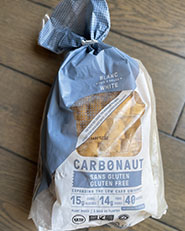
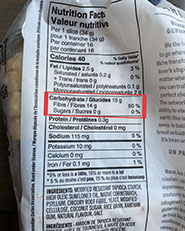 15g carb-14g fiber=1g net carb
15g carb-14g fiber=1g net carb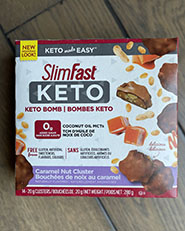
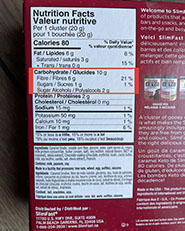 10g carb-6g faiber-2g alcohol sugar=2g net carb
10g carb-6g faiber-2g alcohol sugar=2g net carbCaution: Check labels carefully!
Not all keto products are gluten free so make sure there are no gluten ingredients listed and ideally, look for a gluten free claim on the label.
Especially watch Carbonaut products. Some are gluten free and some are not.
Reading Labels
The number one most important thing is to ensure the product is gluten free.
You may be all caught up in calculating carbs and forget that it's most important to be safe.
Net Carbs
If you are on a gluten free and keto diet, you need to understand net carbs.
That carb number of under 50 grams that we talked about earlier refers to net carbs.
Take the total carbohydrate number on the label and subtract the fiber and alcohol sugar (not sugar)7. This is because fiber and alcohol sugar are non-digestible so they won't take you out of ketosis.
Sugar
Keep the sugar number as low as possible and try to keep added sugar to zero. Some products have natural sugars which is fine if kept to a minimum and offset by fiber.
Added sugar will be listed in the ingredients section as sugar or one of the many other names for sugar like: fructose, maltose, dextrose, syrup. Anything that ends in "ose" or has the word sugar or syrup in it is likely a no no.
Gluten Free and Keto Recipes
I’ve curated a selection of gluten free and keto recipes for you. Many of these are recipes I’ve been making for years and have tweaked a little to make them keto friendly version.
I hope you enjoy them.
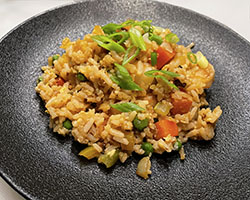 Fried "Rice"
Fried "Rice"Home > Intolerances and Special Diets > Gluten-Free and Keto Diet
Sources:
1. Konscious Keto. (n.d.). Burning Fat vs Storing Sugar. Simple Keto 101, Quick Start Guide, 5.
2.Konscious Keto. (n.d.).What is the Ketogenic Diet? Simple Keto 101, Quick Start Guide, 9.
3. Keto 101. (2020). Prevention Magazine - Keto For Beginners, Special(1), 7
4. Diet Review: Ketogenic Diet for weight loss. The Nutrition Source. (2019, May 22). Retrieved April 11, 2023, from https://www.hsph.harvard.edu/nutritionsource/healthy-weight/diet-reviews/ketogenic-diet/#:~:text=The%20ketogenic%20diet%20typically%20reduces,as%2020%20grams%20a%20day.
5. Konscious Keto. (n.d.). The Benefits of a Keto Lifestyle 101, Quick Start Guide, 25.
6. .Daniluk, J. (2021). In Becoming sugar-free: How to break up with inflammatory sugars and embrace a naturally sweet life (p. 1). introduction, Penguin Canada.
7. Lustig, R. H. (2021). In Metabolical: The truth about processed food and how it poisons people and the planet (p. 24).
8. MediLexicon International. (n.d.). Keto diet: Benefits and nutrients. Medical News Today. Retrieved April 11, 2023, from https://www.medicalnewstoday.com/articles/319196#1-supports-weight-loss
